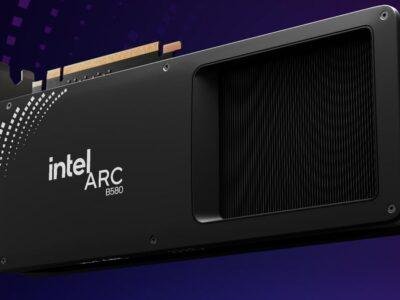Key Points
- China Slams Nvidia Antitrust Violation in $7B Deal
- No penalties yet, but further investigations are underway
- Ruling adds pressure to fragile US-China chip trade talks
- Nvidia’s chips still blocked under new export restrictions
China has officially accused Nvidia of violating antitrust rules tied to its $7 billion acquisition of Mellanox Technologies in 2020. The ruling came from China’s top market watchdog, the State Administration for Market Regulation (SAMR).
It claims the deal may have harmed competition in the local networking and semiconductor industries.
While the acquisition was approved by several global regulators years ago, including the U.S. and the European Union, China’s late-stage investigation shows that geopolitical pressure is influencing how deals are reviewed, especially when they involve critical tech infrastructure.
China Says Nvidia Violated Antitrust Law, Chipmaker’s Shares Slip 1.5% In Premarkethttps://t.co/Mp8aezfjQt pic.twitter.com/1uR8vRbROq
— Forbes (@Forbes) September 15, 2025
Nvidia acquired Mellanox to boost its data center capabilities and high-performance computing solutions, both key to its rise as an AI chip leader.
But China now appears concerned that the deal gave Nvidia too much control in areas where Chinese firms struggle to compete.
The company responded swiftly: “We comply with the law in all respects. We will continue to cooperate with all relevant government agencies,” said an Nvidia spokesperson.
So far, China hasn’t announced any penalties, but the statement indicates that more scrutiny, and possibly restrictions, could be on the way.
WATCH: China’s market regulator said that a preliminary investigation had found that Nvidia had violated the country’s anti-monopoly law, marking the latest hit for the US chip giant https://t.co/KwJzaepI2G pic.twitter.com/FmWMR1ABWg
— Reuters Business (@ReutersBiz) September 15, 2025
This Nvidia antitrust violation marks a rare public confrontation between China and a leading U.S. chip company.
It also signals that China is becoming more willing to flex its regulatory powers in strategic industries like semiconductors and AI, especially as major players like OpenAI partner with Oracle in $300B cloud deals and boost infrastructure dominance globally.
US-China Chip Trade Tensions Are Getting Worse
The Nvidia antitrust violation doesn’t exist in a vacuum. It comes during one of the most complicated times for the global chip industry.
The Biden administration started the year with a now-repealed AI Diffusion Rule, aimed at limiting advanced AI chip exports to China.
After political pressure and pushback from tech firms, the rule was scrapped in May 2025. But any hopes for open trade were short-lived.
In April, the Trump administration imposed new licensing rules for chip sales to China. Then in July, after a brief window of relaxed policies, the U.S. government introduced a new rule: companies must give the government 15% of all revenue from chip sales to China.
🇨🇳 China declares: NVIDIA violated anti-monopoly laws after conducting ‘preliminary probe’
Shares drop about 2% in pre-market trading & US stock index futures pared gains
US chipmaker acquired bunch of high-tech companies before
China’s voice matters for US giants, after all pic.twitter.com/BE26uovhBv
— RT (@RT_com) September 15, 2025
China’s reaction was clear. It discouraged domestic companies from buying from Nvidia and other U.S. suppliers. According to Nvidia’s most recent earnings call, none of their chips have made it through the updated export review process.
The Nvidia antitrust violation is now another layer in this back-and-forth. Though the ruling focuses on past deals, its timing and messaging suggest it could also be retaliation for U.S. export policies, and a way for China to pressure Nvidia without directly banning its products.
With trade talks between the U.S. and China ongoing in Madrid, this development could shape future discussions, especially if tech cooperation becomes a bigger topic on the negotiation table.
“China’s SAMR found that $NVDA violated the country’s anti-monopoly law..not providing fair access to GPUs and Mellanox networking equipment in China and prohibiting anti-competitive practices like forced bundling and discriminatory terms”
If you can’t beat them, penalize them! pic.twitter.com/I7AuNmAhoc
— Mike Kytka (MoneyFlow Research) (@moneyflowinvest) September 15, 2025
This could influence how AI giants like Anthropic, now facing a $1.5B settlement, manage their global expansion amid regulatory crackdowns.
What the Ruling Means for Nvidia and the Industry
The Nvidia antitrust violation not only threatens Nvidia’s future in China but could impact how other tech giants approach cross-border deals.
Mellanox was a key asset for Nvidia. Its networking hardware powers cloud computing, AI infrastructure, and supercomputers, all fast-growing sectors.
If China pushes back against this part of Nvidia’s business, it could limit the company’s ability to sell or support data center operations inside the country.
More importantly, this may become a playbook for how China deals with foreign dominance in strategic sectors. If this investigation leads to penalties or operational restrictions, it may set a precedent for targeting other U.S. firms with old or new mergers in the country.
For the broader chip industry, the Nvidia antitrust violation may force companies to think twice before engaging in large acquisitions that touch on global markets.
Regulatory approval might no longer be a one-time event, deals could be re-examined years later depending on the political climate.
It also raises the question of whether China is laying the groundwork for its domestic players to catch up.
By tightening control over market competition and access, the country could create more breathing room for local companies like Huawei or Biren Tech to grow in areas Nvidia currently dominates.
Nvidia, which once counted on China for a large chunk of its data center and gaming chip sales, now finds itself at the mercy of shifting international policy and geopolitical pressure.
This Nvidia antitrust violation is not just a warning, it’s a wake-up call. Meanwhile, American tech firms from Google expanding AI modes to OpenAI’s internal behavior safety teams are watching these developments closely, as global regulations increasingly shape the direction of AI and chip innovation.
As regulations tighten, expect even greater focus on how companies, including Nvidia and others, handle AI use on social platforms and maintain competitive edge without crossing regulatory lines.







